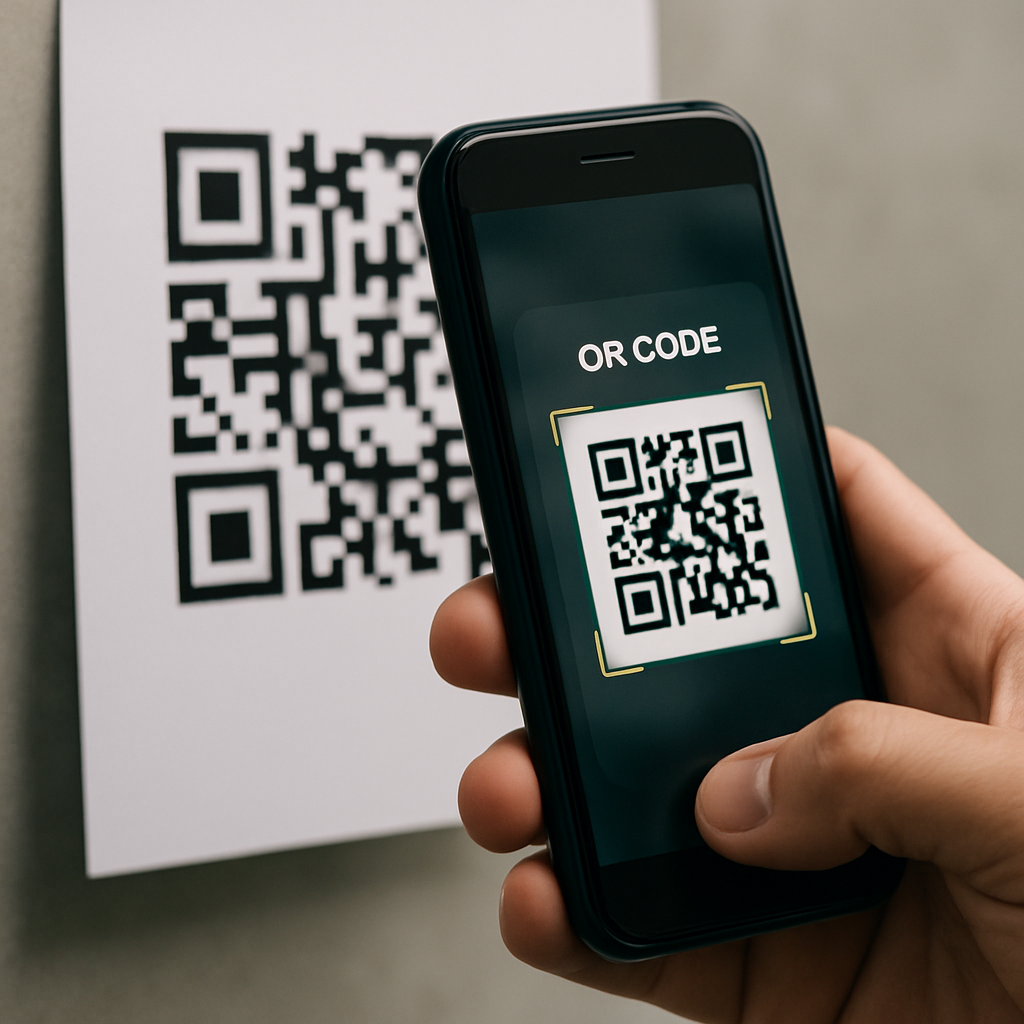QR Code Monkey is one of the most popular free QR code generators online — but is it actually safe to use?
If you’ve searched for an easy, no-login QR code creator, chances are you’ve seen this tool. It’s fast, ad-free, and doesn’t ask for much upfront. But with more tools than ever promising “free forever” functionality, users are right to ask: What’s happening behind the scenes — and can you trust QR Code Monkey with your data?
In this guide, we take a closer look at how QR Code Monkey works, what safety concerns may apply, and how it compares to other QR generators in 2025.
What Is QR Code Monkey?
QR Code Monkey is a free web-based tool that lets you create static QR codes for URLs, text, email addresses, locations, and more. It’s known for its:
-
No registration required access
-
Custom branding features (colors, logos)
-
Unlimited scans for generated codes
-
Downloadable PNG, SVG, and EPS files
It’s especially popular with:
-
Small businesses and freelancers
-
Event organizers
-
Educators and nonprofit projects
-
Digital marketers creating basic links
Is QR Code Monkey Safe to Use?
Yes — for most basic use cases, QR Code Monkey is safe. It doesn’t require login or payment to generate codes, and your QR content is not stored on their servers.
However, there are important caveats depending on how you use it:
🔹 Safe:
-
Generating static QR codes for public content
-
Using codes for one-time or short-term campaigns
-
Embedding codes in low-risk use cases (PDFs, flyers)
🔸 Use With Caution:
-
Creating QR codes that link to sensitive or private information
-
Tracking scans or needing editable codes (requires third-party service)
-
Relying on the platform for business-critical deployments
What Are the Safety Concerns?
While QR Code Monkey itself is not malicious, it’s important to understand the risks common to free digital tools — especially when it comes to:
1. Static QR Code Limitations
Static QR codes cannot be edited once created. If you make a mistake or need to update the link, you’ll need to create a new one. This is a usability risk — not a security flaw — but can confuse your audience or break campaigns.
2. No Built-in Scan Analytics
QR Code Monkey does not provide usage tracking unless you upgrade through their partner platform (QRCode Studio). Free users often turn to third-party link trackers or shorteners, which may introduce privacy concerns.
3. Data Handling Transparency
Although the platform doesn’t ask for logins, it’s unclear how long your generated data or session history is cached. If you’re embedding personal or enterprise data into a QR code, you’re trusting a tool with unknown data retention policies.
🔗 Related reading: How AI Detectors Work: Methods, Accuracy & Real-World Uses — Learn why transparency matters in online tools.
Can QR Codes Be Dangerous?
The QR code itself isn’t the problem — it’s the link behind it that carries risk.
Malicious actors have been known to:
-
Embed phishing URLs behind fake QR codes
-
Replace legitimate printed codes in public places with harmful alternatives
-
Use QR codes to trigger fake login prompts or malware downloads
In fact, the FBI has issued a public warning about criminals tampering with QR codes to steal personal and financial information, especially in public places like parking meters, posters, or event flyers.
If you’re using free QR code generators, you should:
-
Always verify the destination URL before printing or sharing
-
Avoid shortened links unless you control the tracking domain
-
Never embed sensitive credentials or private file access in a public QR code
QR Code Monkey vs Other QR Tools (2025 Comparison)
| Feature | QR Code Monkey | Scanova | Beaconstac | Canva QR Generator |
|---|---|---|---|---|
| Free usage | ✅ Yes | ✅ Limited | ❌ No | ✅ Yes |
| Dynamic QR codes | ❌ No | ✅ Yes | ✅ Yes | ❌ No |
| Scan tracking | ❌ No | ✅ Yes | ✅ Yes | ❌ No |
| Login required | ❌ No | ✅ Yes | ✅ Yes | ✅ Yes |
| Best for | Quick static codes | Campaigns | Enterprise | Design-first use |
QR Code Monkey is best for simple, no-frills projects. If you need advanced features like editing or scan analytics, opt for a more robust platform.
How to Use QR Code Monkey Safely
-
Keep it simple: Use it only for public, non-sensitive URLs or text.
-
Avoid embedding personal data: No private info, passwords, or API keys.
-
Test your QR code: Before printing or sharing, verify the link.
-
Use HTTPS links only: Make sure the destination page is secure.
-
Don’t reuse QR images: If your content changes, regenerate the code.
Final Verdict: Is QR Code Monkey Safe?
Yes — QR Code Monkey is safe to use for basic, static QR code generation, provided you understand its limitations.
It doesn’t steal your data or embed malware, but it doesn’t offer protection either. If you’re running a marketing campaign, tracking QR performance, or handling sensitive information, it’s better to use a platform with dynamic capabilities and clear data policies.
Free tools aren’t inherently risky — but in 2025, tool trust depends on transparency. And as we explored in our AI detectors article, the tools that seem the simplest often involve complex backends you never see.
Call to Action
Need to compare QR code tools or secure your digital campaigns?
Explore more tech safety guides on TechProTech, or check out our tutorial on scanning QR codes safely on Android without downloading an app.


